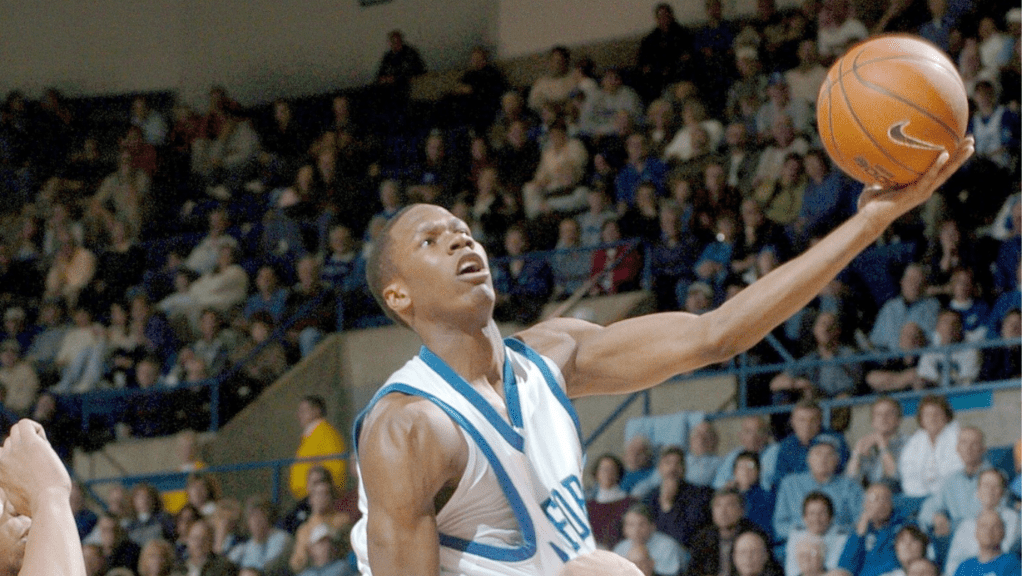The Importance Of Team Sports
Team sports offer unique opportunities for individuals to develop essential interpersonal skills. Participation fosters collaboration, enhancing the ability to work together towards a common goal. Engaging in team activities also builds trust among members, which is crucial both on the field and in various aspects of life.
Playing team sports necessitates effective communication. Players coordinate strategies, share insights, and give feedback to improve overall performance. This interaction improves verbal and non-verbal communication skills, which are vital in personal and professional settings.
Team sports also teach conflict resolution. Disagreements and conflicts are inevitable in a group setting; however, resolving these differences amicably strengthens the team. This skill is directly transferable to other areas of life, helping to manage workplace disputes or personal conflicts.
Leadership skills develop naturally in team sports. Captains and leading players take responsibility, motivate teammates, and make strategic decisions. These experiences create a foundation for effective leadership in future endeavors.
Overall, team sports shape individuals into more collaborative, communicative, and proactive leaders.
Developing Teamwork Skills Through Sports
Team sports play a critical role in enhancing teamwork skills, which are indispensable in both professional and personal environments. These skills span across various dimensions, including:
- communication
- trust
- reliability
- conflict resolution
Communication
Effective communication is at the core of any team sport. Players constantly exchange information, provide feedback, and discuss strategies during games and practice sessions.
For instance, basketball players call out defensive plays, signal for passes, and communicate shifts in positioning. This continuous dialogue enables the team to function cohesively, respond to dynamic game situations, and achieve their goals efficiently. Clear communication in sports translates to improved interaction skills in everyday life.
Trust And Reliability
Trust and reliability form the backbone of successful teams. In soccer, a goalkeeper trusts defenders to block strikers and defenders rely on midfielders to intercept passes. Such dependence builds mutual trust among team members, creating a solid and unified group.
Relying on each other fosters a sense of accountability, where players strive to perform their roles diligently. This reliability extends beyond the field, reinforcing the importance of trust and dependability in various aspects of life.
Conflict Resolution
Conflict resolution is an inevitable aspect of team dynamics. Differences in opinions and approaches occur frequently, both in training sessions and during matches. Coaches and players collectively address and resolve these conflicts, ensuring smooth functioning.
For instance, disagreements during a volleyball game about tactics or responsibilities are quickly resolved through discussion and compromise. This practice of managing conflicts effectively enhances problem-solving skills, emotional intelligence, and strengthens the team’s overall harmony.
Team sports not only improve physical fitness but also foster essential teamwork skills that benefit individuals throughout their lives.
Enhancing Leadership Abilities

Engaging in team sports significantly enhances leadership abilities by fostering critical skills needed for effective leadership. These include decision-making, mentorship, and accountability, among others.
Decision-Making Skills
Participating in team sports requires quick, strategic decision-making. Players often face high-pressure situations where they need to make instant decisions that affect the game’s outcome.
For example, a soccer player deciding whether to pass or shoot in the final moments of a match demonstrates this skill. This ability to make informed decisions under pressure translates into effective leadership in professional and personal contexts.
Mentorship And Inspiration
Experienced athletes often take younger or less experienced team members under their wing. This mentorship helps build a supportive team environment where everyone feels valued and motivated.
For instance, a seasoned basketball player might teach new players techniques or strategies, inspiring them through their experience and guidance. Leaders who mentor others cultivate an inspirational atmosphere that fosters growth and development.
Responsibility And Accountability
- Team sports instill a strong sense of responsibility and accountability.
- Every player understands their role and the importance of fulfilling it for the team’s success.
- A quarterback in football must execute plays accurately, knowing that the team’s performance depends on their actions.
- This acceptance of responsibility and the need for accountability are vital traits in any leadership role, ensuring reliability and trustworthiness.
- By participating in team sports, individuals naturally develop these leadership skills, preparing them for various leadership roles beyond the field.
Examples Of Sports That Foster Teamwork And Leadership
Certain team sports excel at building both teamwork and leadership skills through shared goals, communication, and strategic collaboration. Here are some prime examples:
Soccer
Soccer emphasizes constant communication and collaboration. Players pass, defend and attack together, creating a cohesive unit. Captains lead by example, motivating teammates and making strategic decisions. For instance, midfielders often direct play, anticipating opponents’ moves and making quick decisions to capitalize on opportunities.
Basketball
Basketball fosters close cooperation and quick decision-making. Teams execute plays involving coordinated movements and precise timing. Point guards typically take leadership roles, directing the offense and making split-second choices. Additionally, players like forwards and centers communicate on defense, calling out switches and screens to maintain team cohesion.
Rugby
Rugby demands physical resilience and strategic teamwork. Players must trust each other in scrums, lineouts, and during open play. Team captains exhibit strong leadership by managing on-field tactics and maintaining team morale. Specific roles like fly-half and scrum-half often act as field generals, guiding team strategies and making real-time adjustments.
Long-Term Benefits Of Sports In Personal And Professional Life
Team sports provide lasting benefits that impact both personal and professional life. They instill discipline, resilience, and a strong work ethic. These traits transcend the playing field, benefiting various life aspects.
Discipline And Time Management
Athletes master discipline and time management. Rigorous training schedules and deadlines train athletes to balance multiple commitments. This skill transfers to managing work tasks and personal projects effectively.
Resilience And Stress Management
Sports teach resilience and stress management. Facing losses, injuries, and tough competition helps individuals develop mental toughness. This skill is crucial in professional settings where challenges and setbacks are common.
Enhanced Communication Skills
Enhanced communication skills are a direct outcome of team sports. Players learn to convey ideas clearly, listen actively, and provide constructive feedback. These skills are invaluable in workplace settings, improving team collaboration and project success.
Leadership And Accountability
Leadership and accountability develop naturally in sports. Team captains and leaders must motivate peers, make strategic decisions, and accept responsibility for outcomes. These experiences prepare individuals for leadership roles in their careers, where similar demands exist.
Networking Opportunities
Networking opportunities arise from sports participation. Interacting with teammates, coaches, and competitors builds a network of contacts. These connections can be advantageous for professional growth and opportunities.
Physical And Mental Health Benefits
Engaging in sports ensures physical and mental health benefits. Regular physical activity improves overall fitness and reduces stress levels. Mental health improves through camaraderie and the sense of belonging in a team environment.
Improved Self-Confidence
Self-confidence improves through sports achievements. Overcoming challenges, achieving goals, and receiving recognition boost self-esteem. A higher self-confidence level translates to better performance in professional tasks and personal endeavors.
Career Advancement
Career advancement can be influenced by sports participation. Employers value the soft skills developed through sports, such as teamwork, leadership, and problem-solving. These attributes make candidates more appealing and capable in various roles.
Lifelong Passion And Hobbies
Sports often cultivate lifelong passions and hobbies. Individuals continue to engage in sports-related activities, contributing to a balanced and fulfilling lifestyle. These activities provide a productive outlet and preserve the benefits gained from sports participation.
Enhanced Problem-Solving Skills
Problem-solving skills improve through strategic sports play. Analyzing situations, making quick decisions, and adapting strategies are common in sports. These skills apply directly to professional scenarios, enhancing job performance.
By infusing the lessons learned from team sports into daily routines, individuals realize substantial benefits. These benefits extend well beyond the playing field, impacting both personal growth and professional success.




